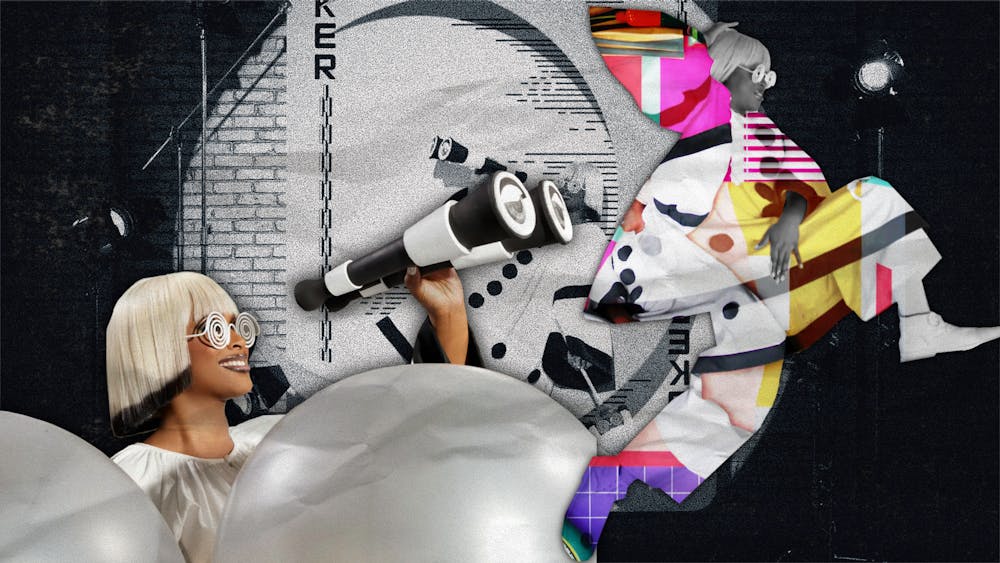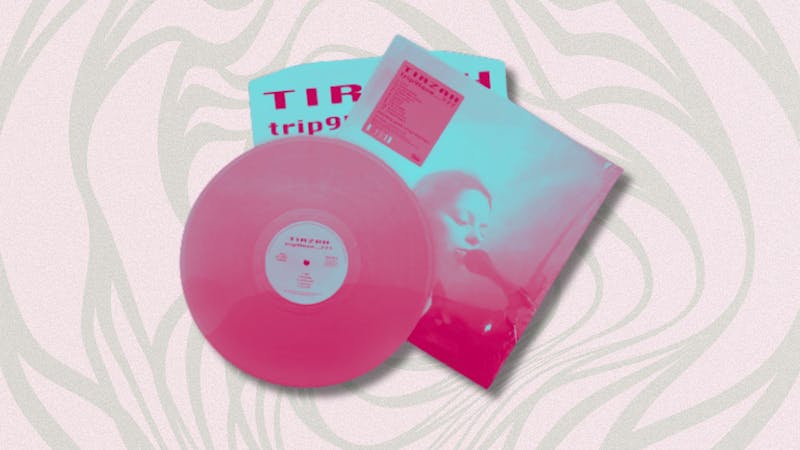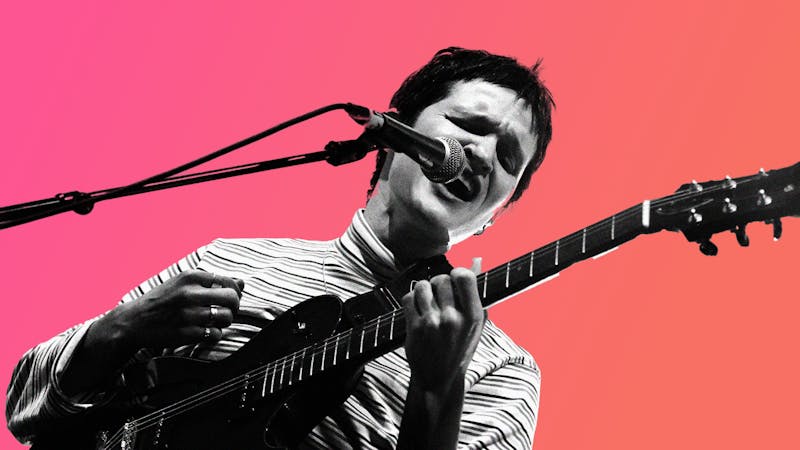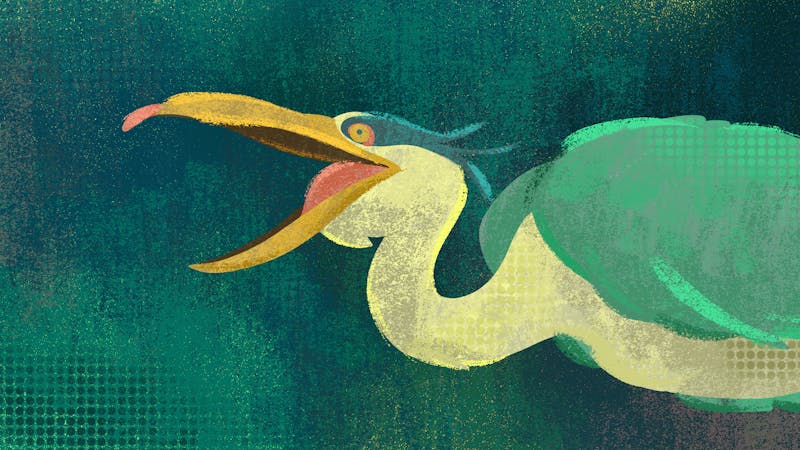“He likes my diamonds and my pearls / I said, ‘Thank you, I designed it.’”
This is the chorus that got me into the Philly–native rapper, R&B singer, visual artist, and innovator Tierra Whack. It comes off of “Hungry Hippo,” one of fourteen minute–long mini songs that make up Whack’s debut mixtape Whack World that accompanied by a visual album of the same length. I don't know how fifteen–year–old me found the song—probably an Anthony Fantano review, based on my Youtube habits back then—or why I gravitated to this song on the mixtape specifically, but I probably played it over a million times that year. I probably just thought the song was catchy at the time, but thinking back on these specific lyrics, there just might have been something in Whack’s jewelry–design flexes that caught my attention.
Like a spark igniting, causing an explosive chemical reaction in my brain, it awakened me to some of my favorite things in hip hop: her colorful auteur–flexes (Whack doesn’t just make music, she draws, designs clothes, and curates her entire creative direction) foreshadowed my intense love for Tyler, The Creator, and her slick, fuck–you–imma–do–me confidence did the same for my Missy Elliott obsession (Anderson .Paak even compared the two artists at Billboard’s Women in Music event). Whack World was everything I wanted as a fifteen–year–old. It was bright, colorful, funny, and had a fifteen–minute–long accompanying YouTube music video. Once again, I watched too much YouTube in those days.
Six years later, after a string of loose singles and a trilogy of genre–themed EPs of varying quality (Rap?, Pop?, and R&B?), Whack's debut album, WORLD WIDE WHACK, is everything I want to hear as an adult—that is, an album about crippling depression.
On the opener, “MOOD SWING,” Whack gives us a hint of what’s to come, but its sweet electric piano backing calls back to the eccentric R&B songs on Whack World. Similarly, the lead single, “CHANEL PIT,” with its cutesy xylophone beat and bars like “Microsoft, I’ma Excel,” could have easily been another song on Whack World if only it was shortened to a minute long.
It takes until “NUMB,” the fourth track, for the darkness to truly set in. Over a reversed synth melody and sparse, quiet drum hits, Whack sings that’s she’s in the “final stage of bein' numb / felt this way since I was young,” before explicitly referring to her anxiety and depression.
The next track, “BURNING BRAINS,” is a personal favorite. It starts off with a kind of R&B call–and–response, as somber e–piano chords play out one by one before a precise snare crack cuts each one off abruptly, leaving a second of pure silence after each. Finally, a kick and eighth note high–hat drop in, and Whack sings about her depression–induced headaches, describing them as “mass explosions” in the brain. Halfway through the track, a new, deeper vocal cuts in—reminiscent of the similar mid–track vocal switch on SZA’s “Snooze.” This new vocal is garbled by effects, imitating the speech of someone whose brain is halfway melted, nearly turned to soup. Spotify says that the lyrics for this part are “Burning in the brain / You have burning brains,” but who can really tell?
“IMAGINARY FRIENDS” is another stand–out track. Over a watery guitar–backed beat, Whack sings/raps about having an imaginary friend, “Tony,” as a means of illustrating her difficulties with human connection; unlike imaginary friends, humans are always showing up late, leaving early, and not caring. Whack even weaves a Philly reference into the chorus, singing: “Bankin’ on our downfall, take me to Wells Fargo,” referring to both the bank and the Wells Fargo Center basketball stadium. In the first verse she takes the basketball allusion further, saying that “When I grow up, I want to hang from a ceiling.” Whack wants to be a Philly legend, and have her metaphorical jersey hung from the rafters of Wells Fargo beside 76ers legends, but at the same time, she feels an equally strong pull toward giving up.
In the fully computer–generated music video for “TWO NIGHT,” a giant blimp in Whack’s likeness floats in between the skyscrapers of downtown Philly. At first, the CGI pedestrians look up in awe, but then, when the oversized blimp crashes into a building and Whack’s giant spiral glasses fall off only to destroy a car and storefront, their curiosity quickly turns to rage. After the blimp becomes a threat, they start attacking it in any way possible—from shooting it with a bow and arrow to driving a car off a roof—to try and bring it down. The blimp is finally taken down by fireworks that shoot into the canvas and explode from inside, creating both a magical light show and an extremely dangerous crashing fireball. In the last moments of the video, one man gets swallowed up by the falling blimp before firefighters extinguish the burning deflated mess. Here, Whack seems to question her own artistic persona, wondering whether it’s beautiful and inspiring, like a firework show, or a horrible burden to those around her. The lyrics add to this idea: “I might die tonight / But before I go, want to let you know / Didn’t pay the light bill this month.” She wants to leave everything behind but is afraid of burdening her loved ones with all the little things she’ll leave unattended.
All of this feels connected to Whack's concerns about her legacy in “IMAGINARY FRIENDS.” If she dies or stops making music, how will she be remembered?
World Wide Whack finds Tierra Whack in an awkward transitional phase. The album centers around anxiety and depression while also including pieces like “SHOWER SONG,” a goofy dance track about singing in the shower that reflect the carefree quirkiness of Whack World. It’s not that lighter material can’t have a place on an album with dark themes; it’s just that these tracks end up feeling separate from the rest, like a half–hearted appeal to Whack World fans, rather than reflecting Whack’s artistic progression. There’s potential for a better synthesis of Whack’s two sides—hopefully, I won’t have to wait another six years to hear it.






